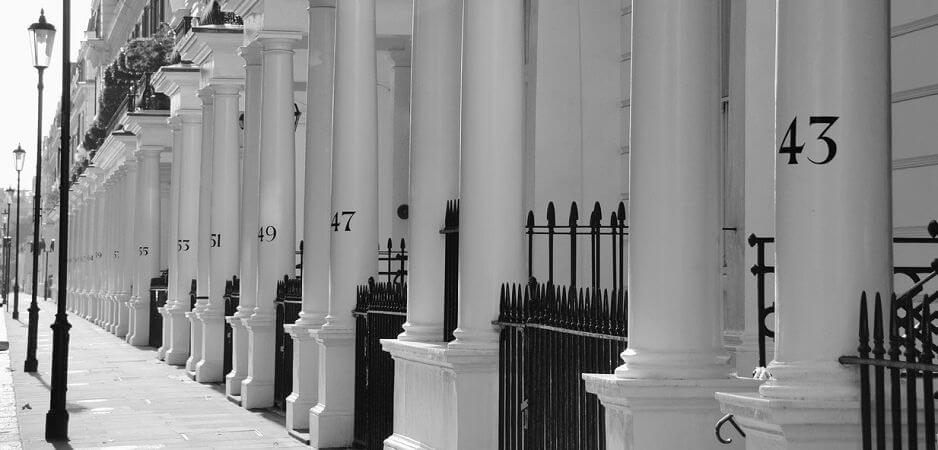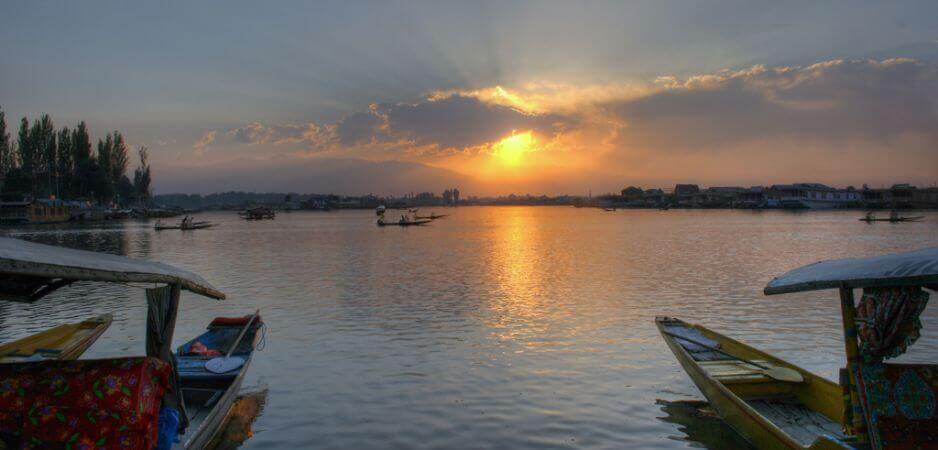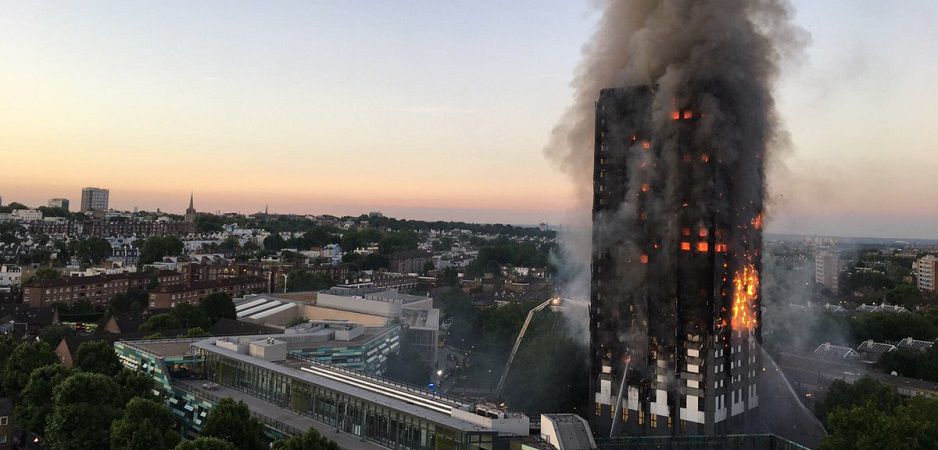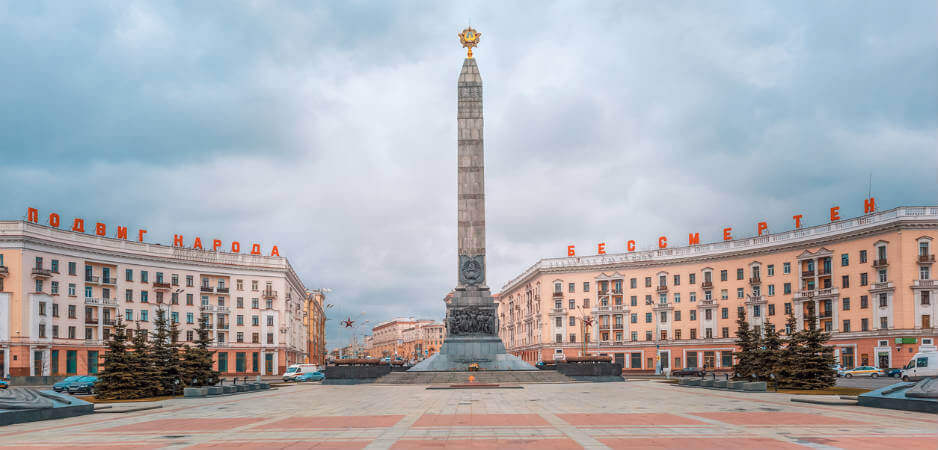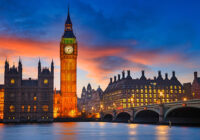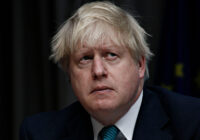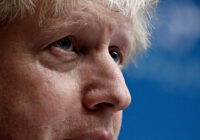In North Kensington, a tower block on fire brings into stark focus increasing inequalities of the UK’s Thatcherite state.
This week, two unconventional young men took charge in Europe. After his victory at the presidential polls, the 39-year-old Emmanuel Macron led La République en Marche, his much younger party, to a resounding victory in France’s National Assembly. In Ireland, 38-year-old Leo Varadkar, the son of an Indian father and Irish mother, became prime minister. Varadkar happens to be gay in a hitherto conservative country where homosexuality was illegal until 1993 and where people voted to legalize gay marriage in 2015 much to the chagrin of the Catholic Church.
In the US, the political soap opera continued. President Donald Trump complained of a witch hunt and admitted on Twitter that he was under investigation. Even as Trump crowed on Twitter, a gunman sprayed bullets at Republican lawmakers during baseball practice, injuring one congressman. The 66-year-old assailant had campaigned for Bernie Sanders.
More significantly, Trump brought back certain travel and trade restrictions eased by the Obama administration on its tiny island neighbor. Cuba denounced “the new measures toughening the embargo.” Jeb Bush, a rival Trump sunk by deriding as “low energy,” has dutifully applauded the president for putting the “US on a needed course correction and back on side of the Cuban people.”
The Trump administration has also put itself on the side of those who are not quite enthusiastic about civil rights. Attorney General Jeff Sessions was born in Selma, Alabama from where thousands marched in an iconic civil rights campaign in 1965. Sessions comes from the opposing tradition. He “was named after the president of the Confederacy and a confederate general,” and many suspect this gun-loving anti-abortionist of rank racism. This week, ProPublica’s investigative report revealed that the Department of Justice has been quietly rolling back civil rights efforts across the federal government.
This week, the Federal Reserve (Fed) raised its benchmark rate by 0.25%, the third increase in six months, to signal its confidence in the growing strength of the US economy. The Fed is supposed to shoot two birds with the same stone: fight inflation and promote full employment. In May, the unemployment rate dropped to a 16-year low and inflation is still below the target rate of 2%. The Fed is finally retreating from its economic stimulus package, but rates still remain historically low for both consumers and businesses. The era of easy money is not quite over yet.
For all the momentous developments, it is a fire in London that is the burning issue of the week. It is not quite the 1666 Great Fire of London that devastated 13,200 houses, 87 parish churches and warehouses full of oil and tallow, but it is a metaphor for rift lines that run deep and wide in 21st century Great Britain.
TOWER BLOCK INFERNO
Grenfell Tower, a 24-storey block in North Kensington, caught fire on June 14, around 54 minutes after midnight. Forty fire engines and more than 200 firefighters combated the blaze, rescuing 65 people from the building. An estimated 400 to 600 people lived in about 127 flats. As of June 17, at least 58 people were presumed dead or missing and 10 were in critical condition.
Grenfell Tower is part of the Lancaster West Estate, a social housing complex of almost 1,000 homes, in the Royal Borough of Kensington and Chelsea. The BBC reports that the neighborhood is “among the most deprived 10% in England.” The tower was mostly inhabited by immigrants, many of them Muslim. The first identified victim was a Syrian refugee. The tower block was built in 1974 and renovated recently. The local Grenfell Action Group had claimed that the tower constituted a fire risk and many had raised concerns for years. The fire safety advice for residents was to “stay put” in their flats until they were under direct threat. It might have resulted in many of them being burned alive.
British Prime Minister Theresa May has ordered a full public inquiry into the incident. May visited the scene and met emergency services crews. She “reportedly refused to meet survivors” and “blocked media access.” In contrast, Labour Party leader Jeremy Corbyn met residents and consoled them. He raised questions about safety of other tower blocks where hundreds of thousands of people live in the United Kingdom. Corbyn promised to get to the bottom of the fire. May is facing a barrage of criticism over her cold and unfeeling response to the tragedy.
While May’s response might have left a lot to be desired, the community has come together quite admirably in the aftermath of the fire. Muslims who were awake because they were beginning their Ramadan fast apparently “saved people’s lives” by running around, knocking on doors and getting people out. Mosques, gurdwaras, churches, community centers and football clubs are providing food, shelter and clothing to the victims of the fire. Ramadan is a month of fasting, prayer and giving. Appositely, a number of online donation appeals have appeared to support the hundreds who have lost their homes.
Queen Elizabeth II has reflected on the “very somber national mood” in the aftermath of recent tragedies in the country. Even as May is being jeered, the 91-year-old queen has issued a rallying call for unity. She has met volunteers, residents and community members, condemning the “chaotic” relief effort and putting May in more of a pickle.
GRENFELL TOWER FIRE PUTS INEQUALITY CENTER STAGE
The previous edition of The World This Week analyzed May’s Pyrrhic victory and pointed out how Labour had upset the Conservatives in the rather posh Kensington seat, where mansions on one exclusive private road cost a mere $55 million (£43 million). The burning tower block reminds everyone that Kensington might not quite be all posh. There are two Kensingtons, one rich and the other poor. South Kensington is leafy, salubrious, idyllic and rich, while parts of North Kensington are unpleasant, smelly, cantankerous and poor.
In the 19th century, none other than Benjamin Disraeli bemoaned that Great Britain was “a country of two nations.” These two nations were the rich and the poor, “between whom there [was] no intercourse and no sympathy; who [were] ignorant of each other’s habits, thoughts and feelings, as if they were dwellers in different zones or inhabitants of different planets; who [were] formed by different breeding, [were] fed by different food, [were] ordered by different manners, and [were] not governed by the same laws.” The great Tory leader could have been talking about 2017.
 In the aftermath of the fire, a woman spoke of leaks, damp, rot, mildew, rats, cockroaches and ants in council estates, complaining that the rich don’t care about people like her. A bespectacled man remarked that the poor have been “gated off” from the wealthier side, complaining that the rich “are living in a different world to us.” The residents in Kensington may not be as eloquent as Disraeli, but they are evoking the same sentiment. Glaring inequality is back with a vengeance in class-divided Britain.
In the aftermath of the fire, a woman spoke of leaks, damp, rot, mildew, rats, cockroaches and ants in council estates, complaining that the rich don’t care about people like her. A bespectacled man remarked that the poor have been “gated off” from the wealthier side, complaining that the rich “are living in a different world to us.” The residents in Kensington may not be as eloquent as Disraeli, but they are evoking the same sentiment. Glaring inequality is back with a vengeance in class-divided Britain.
On February 1, Gavin Johnson covered a report by the Resolution Foundation in the Financial Times. The report indicated that income inequality over the next four years would increase at its fastest since Margaret Thatcher was prime minister. It ascribed six reasons for this phenomenon.
First, the incomes of the poor are likely to fall fastest. Second, the UK labor market is at its peak and new jobs are unlikely to appear. Third, inflation is likely to rise, lowering real wages. Fourth, changes in tax and the benefits system are likely to make the rich richer and the poor poorer. Fifth, rising house prices are freezing growing numbers out of the property market, preventing them from taking advantage of low interest rates and leaving them at the mercy of increasingly powerful landlords. Finally, “the freeze on working-age benefits, lackluster wage growth and the rise of private renting will lead poorer families” most vulnerable to inflation.
As per the report, those in the 90th percentile will make more than six times those in the 10th percentile. This will be the highest ratio on record. As Jean-Baptiste Alphonse Karr once said, “plus ça change, plus c’est la même chose.” The more things change the more they remain the same. If Disraeli were to come back to life à la Hollywood or Jesus, he would agree.
Mind you, the report by the Resolution Foundation does not even delve into wealth inequality. The Equality Trust reveals that wealth in the UK “is even more unequally divided than income. The richest 10% of households hold 45% of all wealth. The poorest 50%, by contrast, own just 8.7%.” The wealth gap has been worsening over the past decade. Another report by the Resolution Foundation estimates that “1% of adults, some 488,000 people, own 14% of the nation’s assets — worth about £11 trillion.” In contrast, “15% (7.3 million people) either own no assets at all, or are in debt.”
THE BALANCE BETWEEN EQUITY AND EFFICIENCY
To understand what is going on, one must understand the equity-efficiency paradox. If everyone gets as per their need and society is equitable, then economies can turn inefficient because people lose the incentive to work. The collapse of the Soviet Union in 1991 is an example of this principle. Yet a world where Stalinist bosses like Steve Jobs torment their employees, deny paternity of their child, and park their cars in areas reserved for the handicapped might not be just, equitable or desirable for all the iPhone, iPads and iMacs it may produce with extraordinary efficiency.
Every society has to reach some balance between equity and efficiency. Those on the left, with communists forming the most extreme among them, tend to favor equity. This can lead to the tyranny of bureaucracy where command and control determine what people produce and consume. Those on the right, with Milton Friedman’s disciples forming the most extreme among them, believe in the untrammeled power of markets where even national parks must be privatized.
For the last two centuries, the pendulum has swung back and forth between the left and right. The 1920s were the heyday of the unfettered market and led to the Great Depression. During World War II, the state expanded to win the war and proceeded to occupy the commanding heights of the economy once peace came around. Even the US followed Keynesian policies and none other than the much reviled Richard Nixon began the Environmental Protection Agency.
The tide of state intervention receded after the 1970s when oil crises and stagflation delivered body blows to Keynesian policies that were on the ascendant since the 1930s. With the election of Thatcher in 1979, Hayekian free market ideals came roaring back. Less regulation and greater enterprise was the path forward for freedom, prosperity and democracy. The fall of the Soviet Union convinced almost all countries, including communist China and socialist India, that the only economic game in town was global capitalism.
The left reinvented itself under Tony Blair and Bill Clinton who emulated Margaret Thatcher and Ronald Reagan respectively. Alan Greenspan kept interest rates low and the Goldilocks economy emerged. Inflation stayed low, productivity went up and the global economy grew by leaps and bounds. Asset prices, such as stocks, bonds and houses, rose merrily with nary a care in the world. Crises such as the 1992 pound crisis, the 1994 peso crisis, the 1997 Asian financial crisis, the 1998 Russian debt default, and the 2001 collapse of the dotcom bubble were deemed normal fluctuations of the market.
Eventually, the crisis hit home with the 2007-08 Great Recession, the biggest global economic crisis since the Great Depression. The crisis ended up with the bailout of banks. This meant poor taxpayers paid out of their pockets to save rich financiers who had squandered their savings. After the bailout, too big to fail banks are even bigger to fail and inequality has widened further. Wages have not risen because there are over 7 billion people competing for jobs in a global economy while asset prices have kept going up thanks to quantitative easing (QE), which is de facto printing of money.
The December 4, 2016, edition of The World This Week yet again warned against the perils of QE that boosts asset prices and exacerbates inequality. In Britain, QE has been accompanied by George Osborne’s austerity. Tory MPs have been ruthless in rejecting housing regulation, making cuts to local councils and whittling down benefits in an effort to bring the UK’s public finances in order. The truth of the matter is that the pendulum might have swung too far.
Thatcherites like Osborne and Iain Duncan Smith have resurrected the Victorian idea of the “undeserving” poor. Those with infirmity of character or indolent habits do not deserve cakes and champagne. Otherwise, there will be no incentive to work. Therefore, for them, there is a moral case for markets and against welfare. This case is strongest against wily migrants. As Fair Observer contributor Duncan Thomas remarks, many Brits believe that migrants get an “easy ride,” have an “easy life” and live in “the best housing.” So, why should the residents of South Kensington pay for the freeloaders of North Kensington?
The Roman historian Sallust offers a clue. Private splendor and public squalor generally lead to decadence, decline and death of civilizations apart from rebellions, revolts and revolutions. The next inferno might just spread from a tottering tower block, causing a conflagration that might prove difficult to douse.
*[You can receive “The World This Week” directly in your inbox by subscribing to our mailing list. Simply visit Fair Observer and enter your email address in the space provided. Meanwhile, please find below five of our finest articles for the week.]
The Key to Kashmir: Public Diplomacy and Secret Talks
In Kashmir, engaging the public is as important as secret negotiations.
Indian and Pakistani diplomats tend to agree on one thing: A peace deal with their quarrelsome neighbor will need to be worked out under the cover of darkness through a so-called “back-channel.” Away from the blinding glare of public attention, suited men (and it is invariably men) in smoky parlors and hotels abroad will secretly hash out the finer details of complex territorial and national security issues, which ordinary plebian-citizens can barely begin to comprehend. The hope is that once these selfless heroes shake hands on a deal, their political masters will sign an agreement with shaky hands, before announcing to the world that peace has been delivered (Nobel Peace prize awaited). Faced with a valley brimming with tensions and a never-ending stalemate in India-Pakistan relations, it may be time for a long overdue reality check. Secret deals among political elites are necessary but certainly not sufficient… Read more
Yes, the Grenfell Tower Fire is Political
No one party is responsible for the disaster in London: local or national, Labour or Conservative — they all are.
One of the key functions of the state is to protect its citizens. Much of the debate in the United Kingdom’s recent general election focused on the government’s role in protecting citizens from terrorists. This was, perhaps, understandable given the recent series of attacks in London and Manchester. But it also diverted attention from the state’s equally important duty to ensure a safe, secure and decent quality of life for all its citizens. With the weight of many years’ experience writing and advising on London’s housing and planning strategies behind me, I think it fair to say that the inferno at Grenfell Tower — a publicly-owned housing block for lower-income households — represents an acute failure of government at all levels. The facts of the case are subject to a major inquiry, and new information is emerging on a daily basis… Read more
Can Election Hacking Be Good for Democracy?
Leaks are actually a fundamental step in the right direction toward a more democratic system.
Russia very likely interfered in the 2016 US presidential election and, more recently, in the 2017 French presidential election. This occurred primarily through the leaking of internal emails and messages related to campaign activities of particular candidates. Although the extent of the Kremlin’s involvement and the true effect of the leaks on the election results remain unclear, many have seen these hacks as an affront against true democracy. The hacks themselves, however, should not be treated as a threat, but rather as an intention to give advantage to one candidate over another. A more transparent electoral process creates more informed voters and deters corruption in political institutions, and the Russian leaks have actually achieved this. While the current one-sidedness of the hacks may potentially undermine the fair nature of our elections, they are fundamental step in the right direction toward a more democratic… Read more
The Triumph of $ellebrity Culture in US Politics
Until the late 20th century, most presidents had no greater ambition than to be respected as serious custodians of the nation’s institutions and economy.
Jack Kennedy, Ronald Reagan, Barack Obama, Donald Trump, Arnold Schwarzenegger, Jesse Ventura. What’s the connection? Two Democrats, three Republicans and an independent. Four presidents and two governors, all with wildly different backgrounds and representing widely varied political constituencies and trends. What could possibly bind such apparently opposing personalities together? The obvious answer is the cult of celebrity, a specifically American phenomenon that in recent years has erased the boundaries between politics and entertainment. But to understand how celebrity articulates with politics, we need to look at the deeper trends in US culture, including the evolution of public values, the structure of the economy and the impact of technological change. Celebrity culture grew rapidly throughout the 20th century, ultimately destabilizing and replacing the two contrasting foundations of US culture that had been dominant in the… Read more
What’s Going On in Belarus?
Human rights violations go largely unnoticed in “Europe’s last dictatorship.”
Amid protests and police violence in Belarus, with the biggest rally taking place on March 25 in Minsk and the country’s larger cities against the so-called “social parasites” law, the country has once again appeared on the global media radar. A nation of 9 million has a tendency of popping up on the news only during unstable periods; more often, human rights violations go unnoticed in what has been dubbed “Europe’s last dictatorship.” The country’s unchanging president, Alexander Lukashenko, has been maneuvering between the European Union, the US and Russia for over two decades. Lukashenko, known for his Soviet-style policies like a stand against privatization and a resurrection of collective farms, has been especially careful about maintaining close connections with Russia’s President Vladimir Putin; he co-founded Eurasian Economic Union in exchange for closer ties and cheaper gas supplies from Russia. But the war in eastern Ukraine has made… Read more
The views expressed in this article are the author’s own and do not necessarily reflect Fair Observer’s editorial policy.
Photo Credit: Onnes
Support Fair Observer
We rely on your support for our independence, diversity and quality.
For more than 10 years, Fair Observer has been free, fair and independent. No billionaire owns us, no advertisers control us. We are a reader-supported nonprofit. Unlike many other publications, we keep our content free for readers regardless of where they live or whether they can afford to pay. We have no paywalls and no ads.
In the post-truth era of fake news, echo chambers and filter bubbles, we publish a plurality of perspectives from around the world. Anyone can publish with us, but everyone goes through a rigorous editorial process. So, you get fact-checked, well-reasoned content instead of noise.
We publish 2,500+ voices from 90+ countries. We also conduct education and training programs
on subjects ranging from digital media and journalism to writing and critical thinking. This
doesn’t come cheap. Servers, editors, trainers and web developers cost
money.
Please consider supporting us on a regular basis as a recurring donor or a
sustaining member.
Will you support FO’s journalism?
We rely on your support for our independence, diversity and quality.


